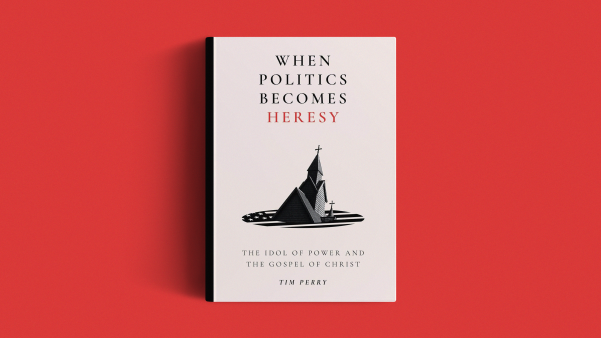Ascetics view it as the essence of sin; playboys think it is the heart of the good life. Pleasure: good or evil? Is Christianity for it or against it? The ancient Epicurean philosophers said, “Eat, drink, and be merry, for tomorrow we die.” Pleasure is essence of good, pain the heart of evil. The utilitarian philosopher Jeremy Bentham translated this into a hedonistic formula: the good of any human action is determined by the quantity of the pleasure over pain it brings to the greatest number of people. An action is good if it maximizes pleasure and minimizes pain for most people. Intellectual pleasures are better than physical pleasures, Bentham argued. Cultured pleasures are preferable to uncultured ones. Because of this, he contended, it would be better to be an unhappy man than a happy pig. The right action, then, is the one that brings the highest quality of pleasure to the greatest number of persons.
Many other philosophers take exception to the idea of calculating the good of life by the pleasures it brings. The Prussian thinker Immanuel Kant contended that the good is not always the pleasurable thing to do. One is under the categorical (absolute, unconditional) imperative to do what is right whether it makes him happy or not. Duty should be done for duty’s sake and not for the sake of pleasure. A masochist receives pleasure from abusing his own body; a sadist may take delight in tormenting children. But neither of these pleasures is right or good. The good life is not the life of pleasure but the life of duty.
Other philosophers ask: Does not even Kant obtain a deep sense of satisfaction from doing his duty? Is not this a kind or moral pleasure available only to those who do what is morally right?
Such questions led to the somewhat different discussion of what is called the summum bonum (Latin for “greatest good”). All philosophies of life, including the moralist’s, are in quest of the greatest good. Whether it is called pleasure, happiness, or satisfaction is not important. The fact of the matter is that there is a yearning in every human heart for a sense of fulfillment, for peace and joy.
As Aristotle pointed out, all persons act for an end or goal. This goal is their good, and their ultimate goal is their greatest good. No one acts simply for the evil he sees in something. Even suicide is deemed a “good” by the one who commits it; it is a solution, a way of resolving an intolerable predicament. Of course, not everything that a person thinks is the best for him really is. “There is a way which seems right to a man, but its end is the way to death” (Prov. 14:12).
If all persons naturally seek satisfaction, or happiness, or pleasure, then why does the Bible seem to warn against pleasure? Proverbs says, “He who loves pleasure will be a poor man” (21:17). Jesus warned about being “choked by the cares and riches and pleasures of life” (Luke 8:14). Paul admonished his readers not to be “slaves to various passions and pleasures” (Titus 3:3) and not be “lovers of pleasure rather than lovers of God” (2 Tim 3:4). Loving pleasure, it would seem, is a taboo for the Christian.
But the Scriptures also speak of pleasure as good. God is said to be at work in every believer “both to will and to work for his good pleasure” (Phil 2:13). There are things in which God “takes pleasure” (Ps. 147:11). “In God’s presence there is fullness of joy, in his right hand are pleasures for evermore” (Ps. 16:11). We can add to this what the Bible says about “joy.” Jesus’ desire for his disciples was this: “That my joy be in you, and that your joy may be full” (John 15:11; cf. John 10:10). Paul prayed for the Roman Christians, “May the God of hope fill you with all joy and peace” (15:13). John spoke of “complete” joy (1 John 1:4).
If the Bible both warns against pleasure and holds it out as a great and even eternal good, then there must be different kinds of pleasure. Apparently some pleasures are good and some are evil. The former should be enjoyed and the latter should be avoided. So far, so good. The danger is in the next step. Christians sometimes oversimplify and draw the conclusion that the good pleasures are the “spiritual” ones and the evil pleasures are the “physical” ones. This pious asceticism has been the source of much harm in the Christian Church.
In contrast to this Christian kill-joyism, the Bible teaches that physical pleasures are God-given. Often throughout the Old Testament, eating, drinking, and merriment are said to be from God. The Solomonic kingdom blessed by God is described as one where the people “ate and drank and were happy” (1 Kings 4:20). After the dedication of the temple the Israelites engaged in a week of feasting from which they were “sent … away to their homes, joyful and glad of heart for the goodness that the LORD had shown to David and to Solomon and to Israel his people” (2 Chron. 7:10). Solomon himself wrote, “I know that there is nothing better for them than to be happy and enjoy themselves as long as they live; also that it is God’s gift to man that everyone should eat and drink and take pleasure in all his toil” (Eccles. 3:12, 13).
God is not a celestial Scrooge who hates to see his children enjoy themselves. Rather, he is the kind of Father who is ready to say, “Let us eat and make merry; for this my son was dead and is alive again; he was lost and is found” (Luke 15:24).
What the Bible teaches is that God is the author of every good thing in life. “Every good endowment and every perfect gift is from above …” (Jas. 1:17). Sexual pleasure, for instance, was created by God (Gen. 1:27) and is to be enjoyed as a gift from God to those whom he joins in loving marriage (Matt. 19:5).
Nothing is evil in itself
A point seldom fully appreciated by Christians is that everything in God’s creation is good. It is, in fact, “very good”; we have the Creator’s word for it (Gen. 1:31). The apostle said, “I know and am persuaded in the Lord Jesus that nothing is unclean in itself” (Rom. 14:14). Again, “Everything created by God is good …” (1 Tim 4:4). “To the pure all things are pure …” (Titus 1:15). The external world and all of the pleasures that are a part of it are not evils to be shunned; they are goods created by God for man’s enjoyment.
If everything in creation is good, then what is evil? Why are Christians told that those who are friends of the “world” are enemies of God? (James 4:4). Why are we exhorted, “Do not love the world or the things in the world. If any one loves the world, love for the Father is not in him (1 John 2:15)?
The answer is in the next verse. The “world” referred to here is not the external world. Rather it is the “world” of lust and pride within the human heart. “For all that is in the world,” continued John, “the lust of the flesh and the lust of the eyes and the pride of life, is not of the Father but is of the world” (v. 16). The evil world from which a Christian is to separate himself is not “out there” but within his own heart. “Not what goes into the mouth defiles a man, but what comes out of the mouth, this defiles a man” (Matt 15:11). And it is because of this that a man misuses the external world.
The key to true pleasure
Real pleasure is not found by separating certain external acts and spheres from others and labeling them good or evil. It is found only as one receives everything, the physical world included, as a gift from God. The enjoyments of life are all gifts of God to be received, not evils to be avoided. But one cannot be happy by clinging to the gift and neglecting the giver. Things are not an end in themselves; they are a means to the end. Satisfaction is found in God alone. As Jesus said, “A man’s life does not consist in the abundance of his possessions” (Luke 12:15).
One cannot truly enjoy the good things in life unless they are subordinated to God. “Seek first God’s Kingdom and his righteousness,” said Jesus, “and all these things shall be yours as well” (Matt. 6:33). Those who worship and serve the creature rather than the Creator cannot be blessed of God (Rom. 1:25). Solomon wrote, “Every man also to whom God has given wealth and possessions and power to enjoy them … this is the gift of God” (Eccles. 5:19). True pleasure is found not in things as such but in things as gifts from God. Without the recognition that temporal pleasures are from God and that eternal pleasure is found only in God, there is no true satisfaction.
The hedonist’s problem is that he seeks to find eternal happiness in a temporal world rather than through it and from God. He vainly attempts to fill an infinite capacity for satisfaction with finite things. As St. Augustine noted long ago, “The heart is restless until it finds its rest in God.”
Solomon’s great experiments
Perhaps no one has ever experimented more widely with the various means of satisfaction to be found in this world than did Solomon. He searched out everything under heaven for satisfaction.
Solomon said to himself, “Come now, I will make a test of pleasure; enjoy yourself” (Eccles. 2:1). First, he tried to find happiness in intellectual pursuits. He said to himself, “I have acquired great wisdom … and my mind has had great experience of wisdom and knowledge. And I applied my mind to know wisdom …” However, he continued. “I perceive that this also is but a striving after wind, for in much wisdom is much vexation, and he who increases knowledge increases sorrow” (1:16–18).
From wisdom Solomon turned to wit as a source of satisfaction. It too was vain. “I said of laughter, ‘It is mad,’ and of pleasure, ‘What use is it’ ” (2:2).
From the hollow sound of laughter, Solomon turned to the delights of drink. “I searched with my mind how to cheer my body with wine … and how to lay hold on folly, till I might see what was good for the sons of men to do under heaven during the few days of their life” (2:3). At the end he found only frustration, not satisfaction, in this alcoholic path of pleasure. For as he noted elsewhere, “wine is a mocker, strong drink raging; and whosoever is deceived thereby is not wise” (Prov. 20:1).
From the follies of over-indulgence in wine he turned to more constructive activities. “I made great works; I built houses and planted vineyards for myself; I made myself gardens and parks, and planted in them all kinds of fruit trees. I made myself pools …” (2:4–6). But the joy of building faded as soon as the projects were completed.
When the projects paled, Solomon turned to wealth. “I had also great possessions of herds and flocks, more than any one who had been before me in Jerusalem. I also gathered for myself silver and gold and the treasure of kings and provinces” (2:7, 8). But with all his wealth he found no happiness. Later he observed, “He who loves money will not be satisfied with money; nor he who loves wealth, with gain; this also is vanity” (5:10).
From silver, Solomon turned to sex. Women were high on Solomon’s pleasure list. “I got singers, both men and women, and many concubines, man’s delight” (2:8). But a thousand wives and concubines (1 Kings 11:3) could not satisfy Solomon. In fact, they led him astray. “For when Solomon was old his wives turned away his heart after other gods” (1 Kings 11:4).
But sensual satisfaction did not truly satisfy. So the sage sought worldly recognition, “So I became great,” he wrote, “and surpassed all who were before me in Jerusalem” (2:9). The Queen of Sheba had heard of Solomon’s fame and came from the end of the earth to declare, “The half was not told me.” But here too there was no permanent happiness.
From fleeting fame Solomon’s heart turned to worldly pleasure. “Whatever my eyes desired I did not keep from them; I kept my heart from no pleasure …” (2:10). But in all of this he saw that “all was vanity and striving after wind, and there was nothing to be gained under the sun” (2:11).
The sum of the whole matter
When Solomon comes to “the end of the matter,” when “all has been heard,” he ends with God, apart from whom there is no lasting satisfaction. God gives us our goal: “I press on toward the goal for the prize of the upward call of God in Christ” (Phil. 3:14). Christ alone is the eternally satisfying bread and water of life. He alone could say, “I come that they may have life, and have it abundantly” (John 10:10). The physical pleasures of sound and sight and smell and taste and touch, the spiritual pleasures, the mental pleasures—all are good gifts of God, who “richly furnishes us with everything to enjoy” (1 Tim. 6:17). And each is given to be enjoyed not ultimately in itself or for its own sake but as a gift from God, who alone is to be enjoyed in himself and for his own sake.










